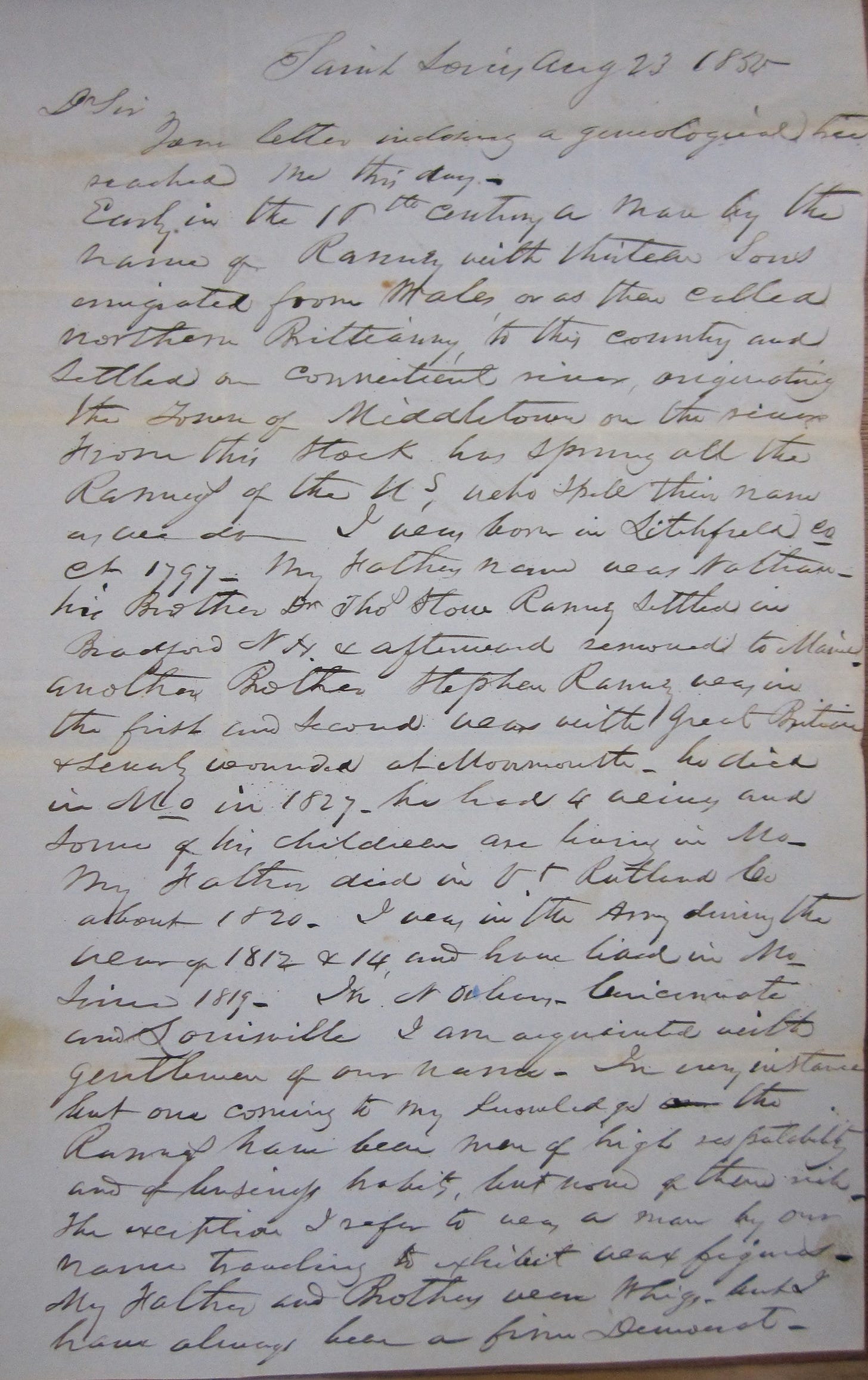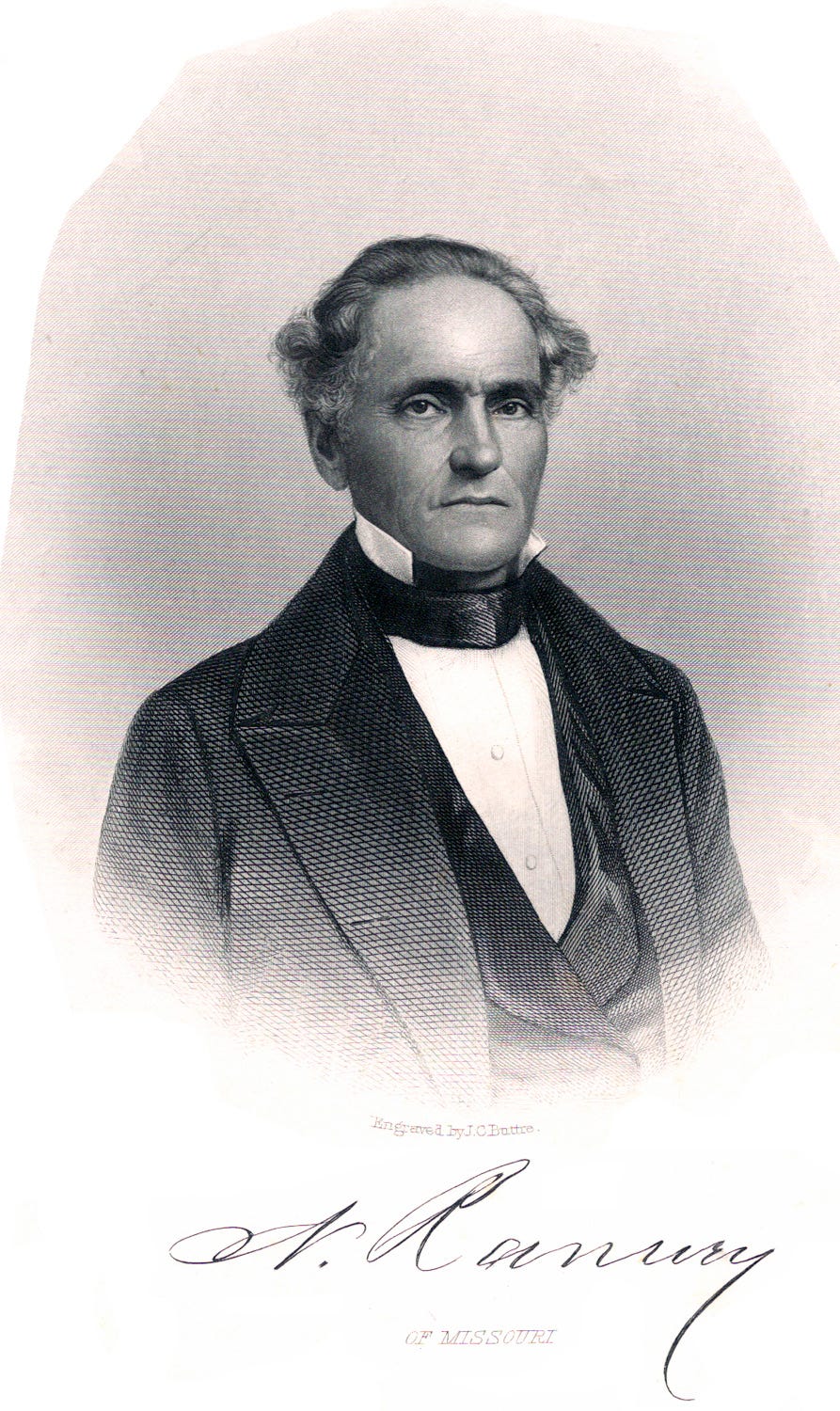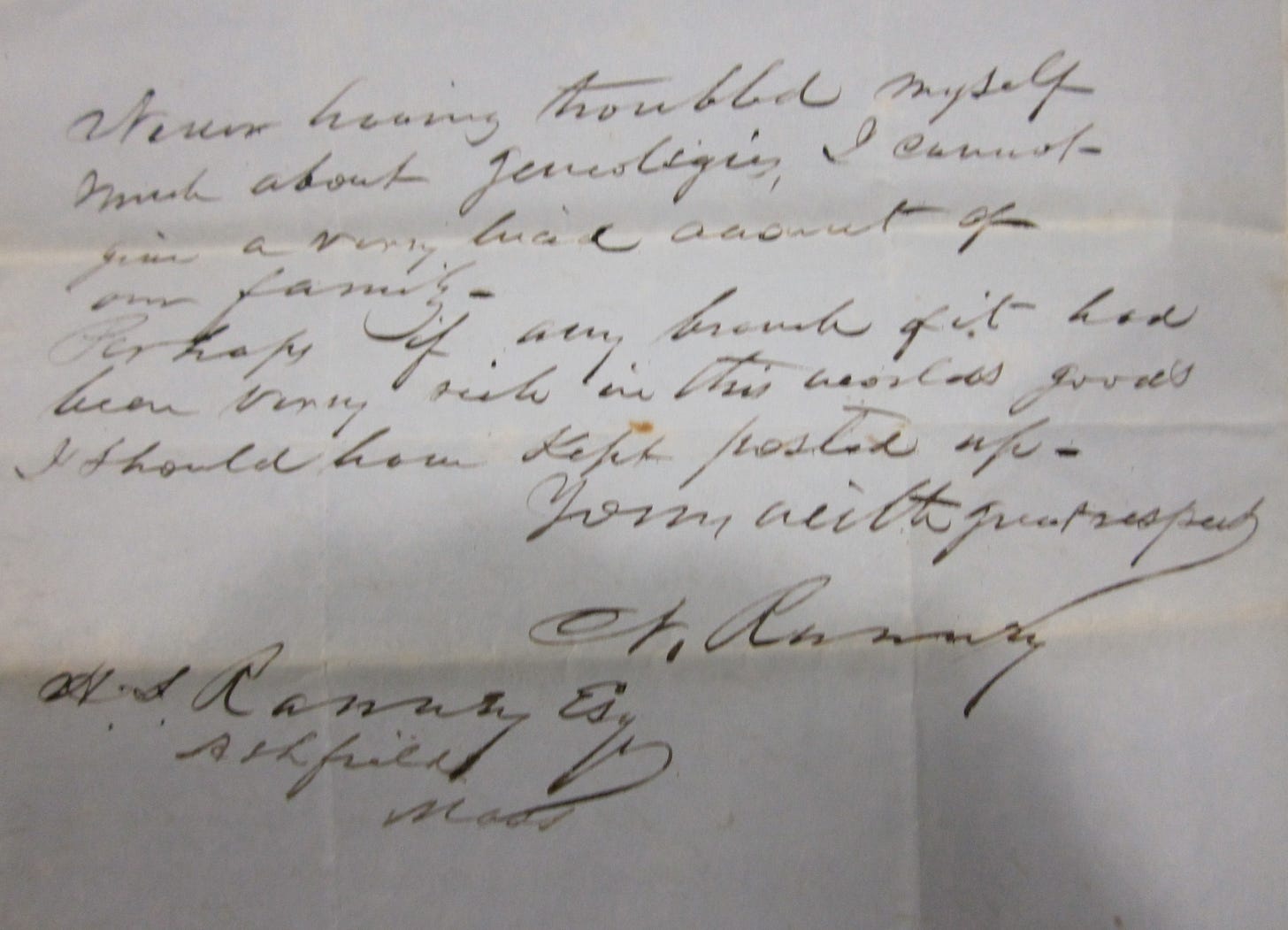In August 1850, Henry received a letter from a distant relative, General Nathan Ranney (1797-1876) of St. Louis Missouri. Henry had written to Nathan with genealogical questions, and Nathan responded with a very general (and partly erroneous — their ancestor apparently came in the seventeenth century from Scotland, not in the eighteenth from Wales) sketch of the arrival of their original ancestor. He added that he had met many Ranneys throughout the North and South, and with one exception they had been “men of high respectability.” The exception was “a man by our name traveling to exhibit wax figures.” Nathan noted that his family were mostly Whigs, but that he was a “firm Democrat.” This apparently changed — or at least he was a Democrat in the Jeffersonian sense, and not a supporter of slavery and secession, because he remained active in the “Union” government of Missouri during the Civil War, and even corresponded with President Lincoln.
It’s interesting that as early as 1850, Henry Sears Ranney was already compiling a family genealogy and looking for information on the origins of the Ranneys in America. Much of what we know about families like the Ranneys comes from the efforts of people like Henry, whose findings were later compiled into volumes like The Middletown Upper Houses, where you can find the entry on Nathan Ranney on page 233 and the one on Henry on page 356. It’s lucky for historians and modern genealogists that people were as interested as they were in their family origins. But why were they? What was going on in the lives of people like thirty-three year old Henry Ranney — or what was going on in 1850 America — that prompted this nostalgia and search for roots?
My Transcription follows these images:

St. Louis Aug 23 1850
Dr Sir
Your letter including a genealogical tree reached me this day.
Early in the 18th century a man by the name of Ranney with thirteen sons emigrated from Wales, or as then called Northern Brittany, to this country and settled on Connecticut River, originating the Town of Middletown on the river. From this stock has sprung all the Ranneys of the US who spell their name as we do. I was born in Litchfield Co. Ct. In 1797. My father’s name was Nathan. His brother Dr. Thos. Stow Ranney settled in Bradford NH and afterward moved to Maine. Another brother Stephen Ranney was in the first and second war with Great Britain & severely wounded at Monmouth. He died in Mo. in 1827. He had four heirs and some of his children are living in Mo. My father died in Vt. Rutland Co. about 1820. I was in the army during the War of 1812 & 14 and have lived in Mo. since 1819.
In N. Orleans, Cincinnati, and Louisville I am acquainted with gentlemen of our name. In every instance but one coming to my knowledge, the Ranneys have been men of high respectability and of business habits, but none of them rich. The exception I refer to was a man of our name traveling to exhibit wax figures.
My father and brothers were Whig, but I have always been a firm Democrat.
Never having troubled myself much about genealogies, I cannot give a very lucid account of our family. Perhaps if any branch of it had been very rich in this world’s goods I should have kept posted up.
Yours with great respect,
N. Ranney





